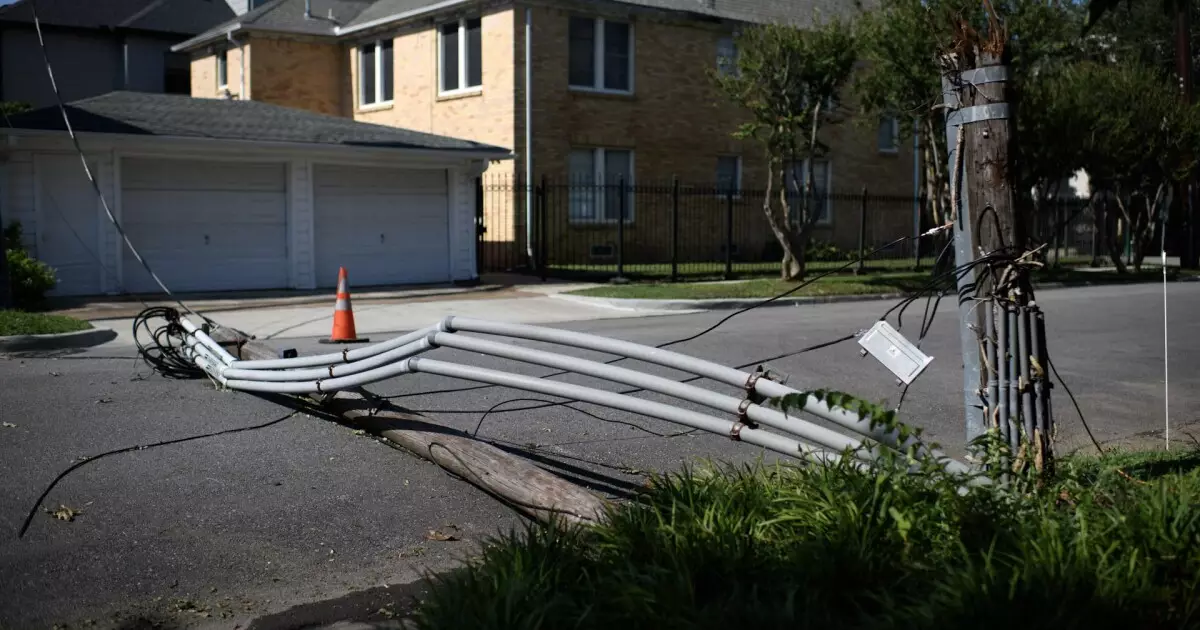In a significant turn of events, Houston managed to avert a catastrophic blow to its fiscal 2025 budget, following Texas state officials’ decision to allocate funds for debris removal necessitated by severe storms. This moment of relief, however, casts a spotlight on the broader financial challenges that Houston faces, challenges that stem not only from natural disasters but also from a growing structural deficit that jeopardizes the city’s long-term fiscal health.
This year has been marked by a series of fierce weather events, including the derecho windstorm in May and Hurricane Beryl in July, which left a substantial trail of debris. As the fourth-largest city in the United States, the financial burden on Houston following such calamities is immense. Mayor John Whitmire articulated the city’s plight during a city council meeting, highlighting the necessity of collaboration with state and federal entities to mitigate the economic fallout. The Texas state government has committed $50 million to aid Houston, but the city still faces a daunting obstacle: approximately $40 million must be sourced from the general fund to cover its share of clean-up expenses.
The Federal Emergency Management Agency (FEMA) is expected to assist with 75% of the estimated $210.6 million in storm-related costs, but even with this support, Houston’s fiscal landscape remains turbulent. A financial overview from the city’s finance department outlines a potential gap of up to $230 million for the upcoming fiscal year, demonstrating the precarious balance between revenue and expenditures.
The allocation of state funds may have temporarily staved off increases to the maintenance and operations property tax rate, as some city council members were advocating a rise to safeguard the budget. Instead of debating a higher rate, the council now plans to maintain the existing rate of $0.55160 per $100 of taxable value. Council Member Sallie Alcorn underscored the importance of examining both expenditure reductions and revenue enhancements, noting the eventual need for additional taxpayer contributions to sustain city services.
While pondering the prospects of future fiscal responsibility, Houston finds itself grappling not only with the aftermath of natural disasters but also with the financial commitments to its public servants. Recent efforts to address firefighter compensation through a $612 million bond issuance illustrate the ongoing pressure on the city’s budget. Meanwhile, negotiations for police union contracts loom on the horizon, ensuring continuous scrutiny over city finances.
As the fiscal landscape deepens, the city controller, Chris Hollins, has cautioned that a court ruling against the city regarding property tax revenue allocations could lead to a deficit ranging from $110 million to $120 million. The looming uncertainty regarding litigation outcomes and the implications for the city’s drainage fund further compound the financial worries faced by Houston.
The financial ratings agencies have also taken notice, with Fitch Ratings and S&P Global Ratings recently downgrading their outlooks on Houston’s credit ratings due to dwindling reserves. The anticipated lean financial year, with projections of a drop from a general fund balance of $467.6 million to around $280 million, amplifies concerns about fiscal sustainability—a critical issue as federal aid wanes.
Moreover, Houston’s fiscal challenges echo across other Texas cities, revealing a collective struggle against the implications of weather-related disasters and pension funding issues. Dallas, for example, has been navigating its own fiscal labyrinth, recently approving a $1.9 billion general fund budget that includes increased contributions to its Police and Fire Pension System. Dallas faces potential downgrades in its ratings if pension issues continue to remain unresolved, reflecting the tightrope other municipalities are walking amid similar budgetary pressures.
Austin, too, is contending with its own potential deficits, predicting a growth from $13.2 million in fiscal 2025 toward nearly $60 million by fiscal 2029 should current funding levels remain unchanged. Additionally, Pflugerville is feeling the pinch, with Moody’s Ratings downgrading its credit rating after observing alarming debt levels and dwindling reserves.
As Houston grapples with both immediate fiscal needs and long-term planning, it epitomizes a broader trend amongst urban centers wrestling with the realities of climate change and financial governance. The recent infusion of state assistance offers a temporary respite, yet the city must chart a strategic course that considers sustainable revenue models while confronting inevitable future storms. Ensuring financial stability in the face of unpredictability will require innovative thinking, collaboration across jurisdictions, and perhaps most importantly, a renewed conversation about community contributions to enhance civic resilience.

